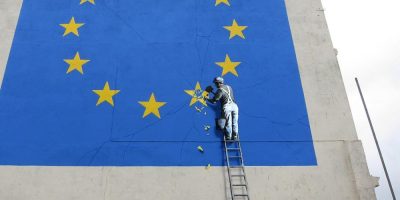The European Parliament Resolution on European Remembrance Day, Condemning Nazi Germany and The Soviet Union
IADL Statement

The International Association of Democratic Lawyers (IADL) was appalled to learn of the resolution adopted by the European Parliament on September 19, 2019, titled “Importance of European Remembrance Day for the Future of Europe.“
This resolution reinforces the declaration of September 23, 2008, in which the European Parliament asserted that the Soviet Union and Nazi Germany were equally responsible for the crimes of the Second World War.
When the European Parliament adopted the 2008 resolution, there was strong criticism of its false equivalence between the Soviet defense against the invasion by the Nazi Army and the crimes of the Nazis. That became a false equivalence between communism and fascism.
As the European Parliament now declares that signing the Soviet-German nonaggression pact of August 23, 1939, “ which paved the way for the outbreak of the Second World War“ and “as a direct consequence“ of “the Molotov-Ribbentrop Pact,“ the distortion continues.
The new resolution ignores the fact that the war had long been planned by Hitler and it also omits the fact that Soviet Foreign Minister Litvinov had strongly endeavored to build a defensive alliance with Western powers against the feared attack of German fascism. The resolution omits any mention of the Munich Agreement, in which, on September 30, 1938, Great Britain, France and Italy, despite their mutual assistance pacts with Czechoslovakia, permitted Hitler to annex Czechoslovakia, thus confirming the danger of the fascist threat.
The resolution is replete with false assertions and insinuations. For example, it claims that “Russian authorities are currently promoting that Poland, the Baltic States and the West are the true instigators of WWII.“ Its critique of the Soviet historiography of Poland, the Baltic States and the Western powers refusing to contribute to an antifascist security system is justified. But nowhere does the resolution say that these states were also responsible for the outbreak of the war. This distortion of history ironically relieves only the fascist aggressors.
The resolution’s reference to the Nuremberg trials, “to conduct legal inquiries into the crimes of Stalinism and other dictatorships,“ is a false description of the military tribunals that held Nazi leaders accountable for most atrocious crimes. Indeed, the Soviet Union – as the state most victimized by this war of extermination – actively contributed to the development of the Nuremberg Principles.
If the European Parliament now advocates convening trials to prosecute the alleged crimes of the Soviet Union, it would be an insult to the greatest achievements of international law in the immediate post-war period. It would deny the extraordinary contribution and the greatest sacrifice of the Soviet Union to free the world from German fascism. It is an inadequate attempt to revise history, and would compound the anti-Russia objective of this resolution.
The resolution uses the observance of Remembrance Day to attack Russia directly, as it “maintains that Russia is the greatest victim of communist totalitarianism and development into a democratic state will be impeded as long as the government, the political elite and the political propaganda continue to whitewash communist crimes and glorify the Soviet totalitarian regime.“
The European Parliament “is deeply concerned about the efforts of the current Russian leadership to distort historical facts and whitewash crimes committed by the Soviet totalitarian regime.“ But the falsification of historical facts was accomplished by the authors of this resolution. When the European Parliament declares at the same time that it advocates “building European resilience against to modern external threats,“ it harkens back to the rhetoric of the Cold War.
The resolution contradicts its stated purpose to form the basis for reconciliation through truth and memory. On the contrary, it creates division by re-writing history. It must be noted that fascism, despite the varying forms it takes in different locations and times, reflects corporate control of the state, while communism aims at worker control; this fundamental opposition is further obscured by this resolution.
The resolution is particularly dangerous because the Parliament “calls on the Commission to provide effective support for projects of historic memory and remembrance“ and “support commemoration and remembrance of the victims of totalitarianism“ and “including the history and analysis of the consequences of totalitarian regimes in the curricula and textbooks of all schools in the EU.“ Thus, it advocates rewriting the history of World War II and makes historic revisionism the basis of its memory politics.
IADL is dismayed that this declaration has garnered so much approval and so few opposition votes in the Parliament. The task of the European Parliament is to fight the growing forces of right-wing extremism, neofascism, antisemitism and anticommunism everywhere, and to support democratic and social movements instead of widening the gap between the European Union and the rest of Europe.
*
Note to readers: please click the share buttons above or below. Forward this article to your email lists. Crosspost on your blog site, internet forums. etc.

